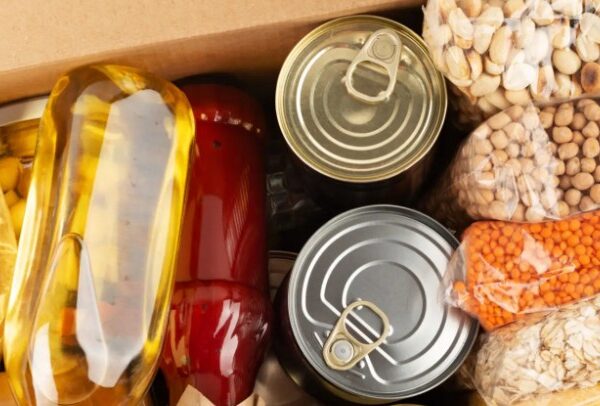Food, Water, and Nutrition Preparedness for Your Bug-Out Bag
When assembling your bug-out bag (also known as a go bag or 72-hour kit), it’s essential to consider food, water, and nutrition needs to ensure that you have access to sustenance during an emergency situation. In this article, we will discuss various strategies for creating a well-stocked, nutritious bug-out bag to help keep you healthy and energized during challenging times.
Non-Perishable Foods
- Pack non-perishable foods that require minimal preparation and provide a balance of proteins, carbohydrates, fats, vitamins, and minerals. Examples include:
- Energy bars or trail mixes
- Canned fruits, vegetables, and meats (with a manual can opener)
- Dried fruits, nuts, and jerky
- Instant oatmeal or pasta with freeze-dried or dehydrated meals
Water Storage and Filtration
- Store at least one gallon of water per person per day in sealed bottles or a collapsible container. In addition to bottled water, consider the following options:
- Water purification tablets or drops for treating contaminated water sources
- A portable water filter or purifier (e.g., LifeStraw)
- Collapsible water containers and water bags for storing and transporting water
Nutrition Considerations
- Include supplements, such as multivitamins, mineral salts, and energy bars with added nutrients to help maintain overall health during an emergency.
- If you have any dietary restrictions or allergies, be sure to account for these when selecting non-perishable foods for your bug-out bag.
Food Preparation Tools
- Include a manual can opener, utensils, and a compact camping stove or stove fuel if space permits.
- Consider packing disposable plates, cups, and eating utensils to minimize waste and make meal preparation easier.
Meal Planning
- Plan meals that offer variety and nutrition, while accounting for calories needed to maintain energy levels during an emergency situation.
- Store food in airtight containers or resealable bags to protect against spoilage and pests.
Rotation and Storage
- Regularly rotate food items to ensure they remain fresh and safe to consume, replacing expired foods as needed.
- Store food in cool, dry places away from direct sunlight to prolong shelf life.

